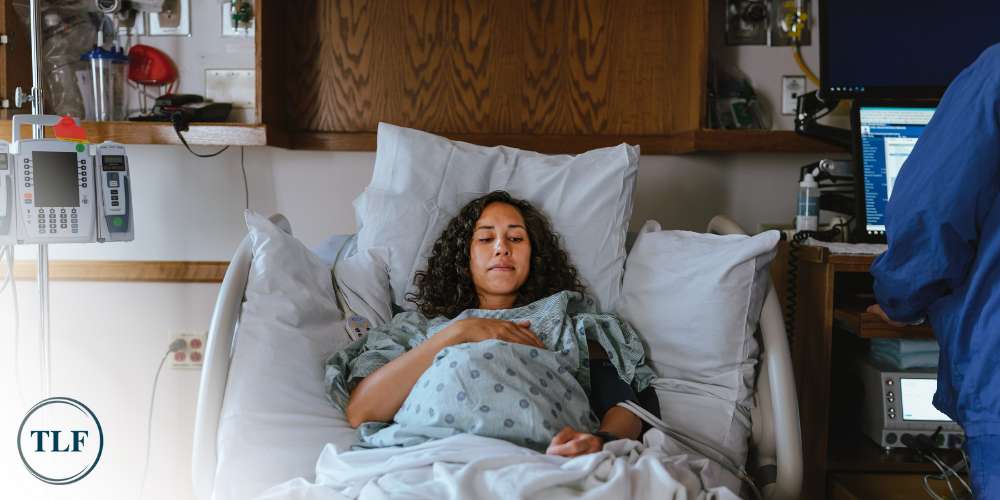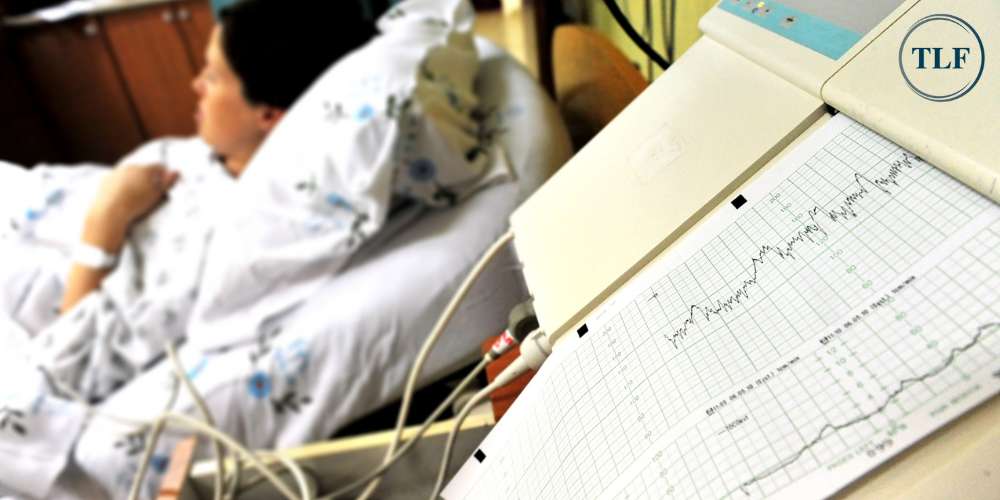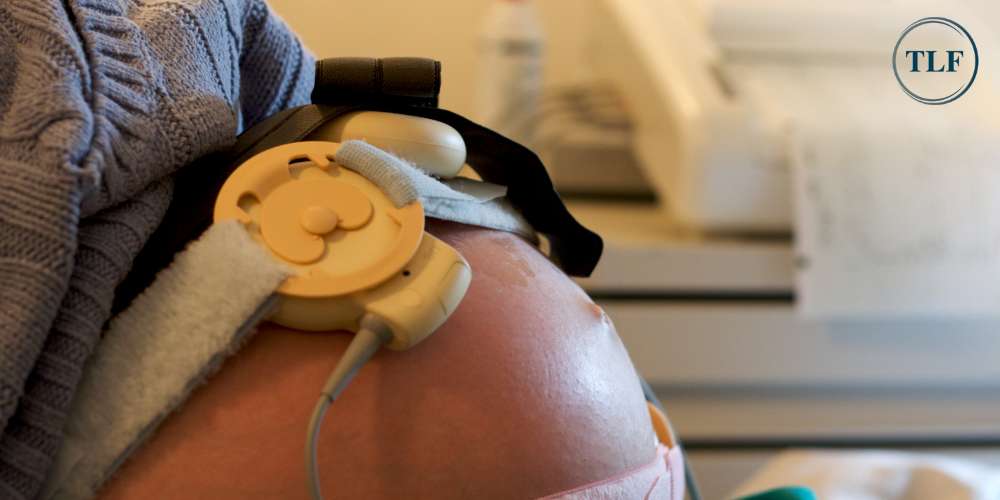Putting Our Knowledge And Experience To Work
Home » Birth Injuries » Uterine Rupture
Uterine Rupture Lawsuit
Northern Kentucky and Cincinnati Medical Malpractice Attorneys for Uterine Rupture Claims

A tear in a mother’s uterus, known as a uterine rupture, is a life-threatening emergency complication occurring during childbirth that endangers both the mother and child. If doctors and delivery room staff fail to act quickly to prevent a uterine rupture or delay performing an emergency cesarean section when one occurs, the results can be devastating. An unrecognized or untreated uterine rupture can lead to severe maternal complications like excessive bleeding, hypovolemic shock, and damage to surrounding organs, potentially necessitating an emergency hysterectomy or worse. For the fetus, it may result in oxygen deprivation, leading to brain injury, cerebral palsy, or even fetal death. In such cases, medical negligence may be to blame, and families could have grounds for a medical malpractice claim.
At TLF: The Medical Injury Law Firm, we handle a wide range of birth injury cases, including those involving uterine rupture and other serious complications during labor. Serving clients throughout Southwest Ohio and Northern Kentucky, we are committed to pursuing justice for families affected by these traumatic events. Rest assured, our legal team is prepared to help you explore your legal options and fight for the fair compensation you deserve for the losses you and your family have suffered.
To speak with a Cincinnati or Covington medical malpractice attorney at our firm, call (800) 698-4054 or reach out online to schedule a free consultation today.

What is a Uterine Rupture?
A uterine rupture, also called a uterine tear, is a serious childbirth complication that can occur during vaginal delivery. Uterine ruptures happen when the woman’s uterus tears open, allowing the baby to slip into the abdominal cavity. These ruptures may be either complete or incomplete. A complete uterine rupture occurs when the tear goes through all three layers of the woman’s uterus, while an incomplete does not.
Regardless of whether it is complete or incomplete, uterine ruptures are a medical emergency that can be life-threatening for both the mother and child. The mother may suffer from severe blood loss, which can lead to shock or other critical conditions, while the unborn baby faces the risk of suffocation and various other life-threatening injuries. As such, prompt medical intervention is crucial to prevent these devastating outcomes, and failure to act quickly can result in severe, long-lasting consequences for both the mother and child.
Placental Abruption vs. Uterine Rupture
Uterine ruptures and placental abruptions are both serious childbirth complications, but they differ in cause and effect. For starters, they involve different parts of the pregnancy system—one with the uterine wall and the other with the placenta.
As we just learned, a uterine rupture occurs when the wall of the uterus tears during labor. A placental abruption, on the other hand, occurs when the placenta detaches from the uterine wall prematurely, cutting off the baby’s oxygen and nutrient supply. Though different in nature, both traumatic events can lead to significant risks for the baby and mother, including severe bleeding and fetal distress.

What Causes Uterine Rupture?
Uterine ruptures are very rare, but when they do occur, they tend to occur in women who have had an emergency cesarean section from a previous pregnancy but have chosen a vaginal birth this time around (also known as VBAC). With each previous cesarean delivery, the chances of a mother’s uterine rupture grow higher.
It is for this reason that many doctors recommend that pregnant women who have previously undergone a C-section avoid vaginal birth. Though a vaginal delivery is certainly possible, these women are at a higher risk and doctors should closely monitor for any signs of a potential uterine rupture.
Risk Factors for Uterine Rupture
While uterine ruptures can occur during any birth, certain women are at higher risk of suffering these injuries. In addition to having had previous cesarean sections, other risk factors for uterine rupture include:
- Other Uterine Surgeries: Similar to having previous C-sections, surgeries like fibroid removal or repair of a uterine defect can weaken the uterine wall, potentially putting the mother at severe risk of uterine rupture.
- Labor Inducing Drugs: Use of cervical ripening drugs and other medications used to induce labor, such as oxytocin, Cyotec, or prostaglandins, can increase stress on the uterus.
- Multiple Pregnancies: Having had many pregnancies or closely spaced pregnancies can weaken the uterine muscles.
- Carrying Multiples: A larger uterus due to multiple babies (twins, triplets, etc.) and having excess amniotic fluid can increase the risk of rupture.
- Trauma to the Mother’s Abdomen: External trauma, such as a car accident or fall, can increase the chance of uterine rupture.
- Large Baby: A larger-than-average baby (macrosomia) can put extra pressure on the uterine wall during labor.
- Excessive Uterine Contractions: Overly frequent or strong contractions can stress the uterus, raising the risk.
- Short Interval Between Pregnancies: A short time between pregnancies may not give the uterus enough time to heal completely.
- Placenta Percreta: A condition where the placenta grows too deeply into the uterine wall can increase the risk of rupture.
- Abnormal Uterine Anatomy: Structural abnormalities in the uterus can increase the likelihood of rupture.

How Common is Uterine Rupture?
Uterine rupture is a relatively rare complication, occurring anywhere between 1 in 5,700 to 1 to 50,000 vaginal deliveries in women without previous cesarean sections or uterine surgeries. The risk becomes much higher for women who have had one or more previous C-sections, increasing to about 1 in 300 deliveries.
While relatively rare, uterine rupture is considered a serious medical emergency that requires immediate attention to prevent life-threatening complications for both the baby and the mother.
Uterine Rupture Symptoms
There are several signs and symptoms that might indicate a uterine rupture. Some of the more common signs of uterine rupture include the following:
- Abnormal fetal heart rate
- Fetal distress
- Rapid heart rate in mother
- Low blood pressure or shock in the mother
- Excessive bleeding
- Irregular or excessive contractions
- Abnormally painful contractions
- Pain between contractions
- Severe abdominal pain
- Strange bulging beneath the pubic bone
- Sharp pain at the site of a previous uterine scar
- Labor failing to progress naturally
- Recession of baby’s head into the birth canal
- Placental abruption
- Loss of uterine muscle tone
It is incredibly important that medical professionals be diligent in monitoring mother and child for warning signs of uterine rupture, especially if the mother has uterine scarring from a previous emergency C-section.

Potential Uterine Rupture Complications
When the uterine wall tears, the fetus may protrude from the uterus or be expelled from it. This puts the child at risk of serious birth injury, often stemming from a lack of oxygen or blood. Oxygen deprivation can lead to birth asphyxia, which can in turn lead to severe brain damage. Such brain damage can further lead to life-altering conditions, including permanent neurologic disability and associated developmental delays, such as cerebral palsy, hypoxic ischemic encephalopathy, (aka hypoxic brain injury), or other birth trauma. Should the baby suffer from a lack of oxygen for too long after the uterine rupture occurs, it may also be fatal.
Uterine ruptures can also be life-threatening to the mother, as well. In addition to the symptoms mentioned above, women who suffer from a ruptured uterus can hemorrhage and suffer severe bleeding, leading to shock or death if not quickly treated. Adjacent organs, such as the bladder, may also be injured during the rupture. Additionally, the rupture can increase the risk of maternal infection, particularly if emergency surgery is delayed, as well as result in future fertility problems.
As you can see, a uterine rupture is a serious complication that requires immediate intervention to ensure the safety of the mother and child and prevent catastrophic injuries or even death.
Is Uterine Rupture Fatal?
A uterine rupture can be fatal if not treated promptly. When the mother’s uterus ruptures, it can lead to life-threatening complications for both the mother and baby (as noted above). Without immediate medical intervention, the mother may suffer from hemorrhagic shock, and the baby can experience oxygen deprivation, which may lead to permanent brain injury or death.
Needless to say, the severe consequences of uterine rupture highlight the need for rapid response to ensure the safety of both mother and child.

How Is Uterine Rupture Treated?
In uterine rupture cases, uterine surgery is typically required to remove the baby from the mother’s body as soon as possible. The baby will likely need critical care and ventilation immediately to deliver oxygen back to the brain and increase the chances of survival. If the uterine rupture results in significant blood loss, a blood transfusion may also be necessary.
In more extreme cases, the mother’s uterus may need to be removed completely with an emergency hysterectomy to stop the bleeding. Once the ruptured uterus is removed, the woman will not be able to become pregnant again.
How Long Does it Take for a Ruptured Uterus to Heal?
The healing time for a ruptured uterus can vary depending on the severity of the rupture and the treatment received. After surgical repair, most women will need several weeks to recover, typically around 6 to 8 weeks, similar to the healing time after a C-section. However, if a hysterectomy is performed due to severe damage, recovery may take longer.
Aside from physical healing, it’s important to note that making a full recovery may also involve emotional and psychological healing, especially if the rupture leads to severe consequences for the mother and/or her baby.
How To Prevent Uterine Rupture
Preventing uterine ruptures involves careful monitoring and proactive management during the birth process, especially for mothers with previous cesarean sections or uterine surgeries. Healthcare providers should closely watch for signs of distress, such as a sudden drop in the baby’s heart rate, using a fetal monitor throughout labor. Paying attention to the mother’s pain level and discomfort is equally important. If a mother reports unusual or unbearable pain during labor, it could signal potential complications.
Early detection of these signs allows for prompt medical intervention, such as performing an emergency C-section, which can help prevent a complete uterine rupture and ensure the safety of both mother and baby.

Medical Negligence Lawsuits for Uterine Rupture
It is important to remember that a uterine rupture is a type of birth injury that is not caused by the negligence of a medical professional, but rather from a preexisting condition. This is one case when malpractice stems from a doctor’s lack of action rather than their actions.
Detecting an irregularity and working immediately to fix the problem is an incredibly important aspect of prenatal care and labor and delivery. As such, the fundamental cause of action for a uterine rupture medical malpractice case is a physician’s failure to notice the rupture in time and failure to perform an emergency C section, and that this delay caused severe injury or death to the mother and/or her baby.
How an Experienced Birth Injury Lawyer Can Help
In medical malpractice cases involving a uterine rupture, an experienced attorney plays a crucial role in helping families seek justice. When a child suffers birth injuries due to a healthcare provider’s negligence, such as failing to act quickly during a rupture, a knowledgeable Ohio or Kentucky birth injury attorney like those at TLF: The Medical Injury Law Firm can guide the family through the many challenges and nuances of a medical malpractice claim. Our attorneys regularly work with medical experts to review medical records and determine whether the actions of the medical team deviated from the accepted standard of care during the uterine rupture case.
If a mother or child suffered birth injuries or if medical negligence tragically results in a wrongful death case, our attorneys can help pursue compensation for the family’s medical expenses, emotional trauma, and other damages through a wrongful death or birth injury lawsuit. With our vast experience, skill, and legal resources, we have what it takes to ensure that the responsible parties are held accountable, helping families navigate the legal process and secure financial relief for the harm caused.
Whether the case involves long-term care after a mother or child suffers serious injuries or the devastating loss of either or both, an experienced birth injury attorney at TLF can be invaluable for building a strong case and fighting for the justice your family deserves.

To Learn More About Your Potential Uterine Rupture Lawsuit, Call the Ohio and Kentucky Medical Malpractice Lawyers at TLF Today
At TLF: The Medical Injury Law Firm, our Cincinnati and Northern Kentucky injury attorneys thoroughly investigate birth injury cases to determine if obstetricians and other medical staff members were negligent in their duties. We are committed to helping our clients obtain fair and just compensation for medical bills, birth injuries, wrongful death, and other losses suffered due to labor and delivery malpractice.
If negligence in identifying or treating a uterine rupture leads to your, a loved one’s, or your baby’s injury, our experienced medical injury law firm is here to help you pursue compensation for your losses through a uterine rupture lawsuit. Contact the team at TLF today via our online intake form or by telephone at (859) 578-9130 (Covington, KY office), (513) 651-4130 (Cincinnati, OH office), or toll-free at (800) 698-4054 to arrange a free consultation.
Practice Areas
You Pay No Fees Unless We Win!
We are happy to offer a free consultation to evaluate your case. If you hire us as your legal counsel, we will represent you on a contingency-fee basis. You will pay no attorneys’ fees unless we recover financial damages.
